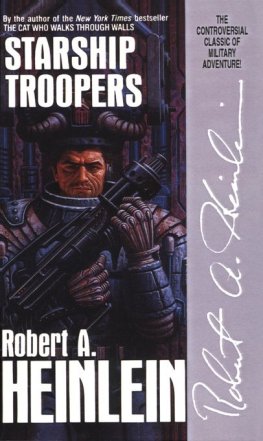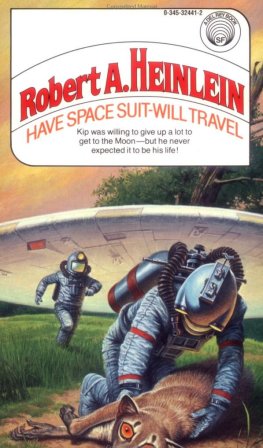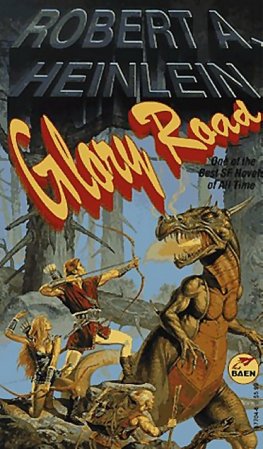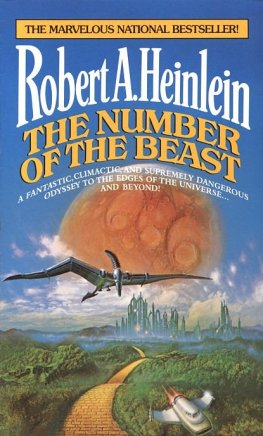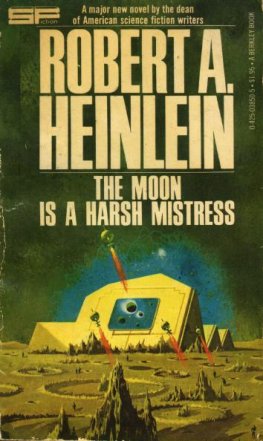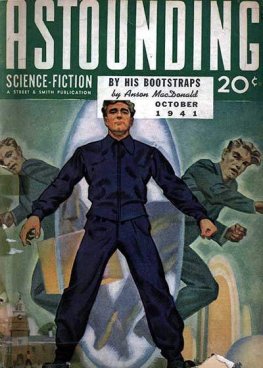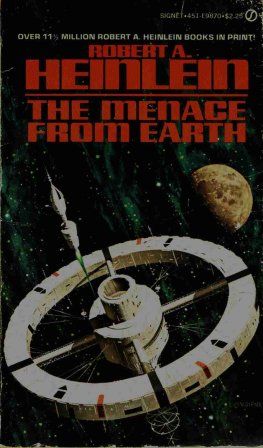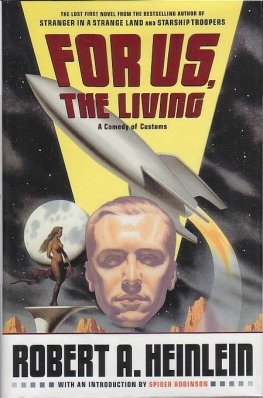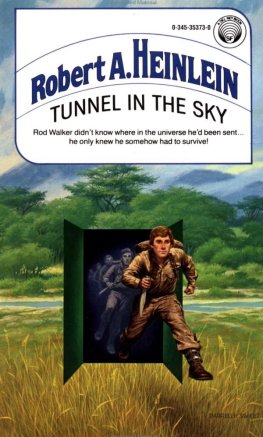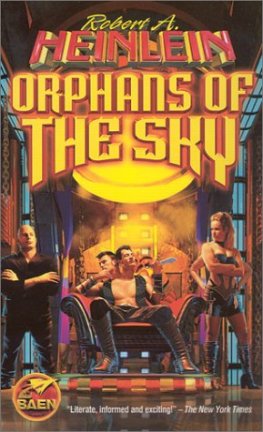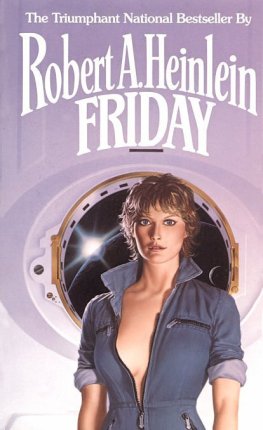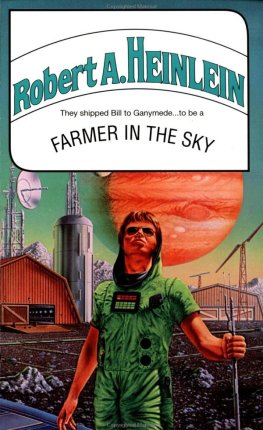Robert Heinlein - Beyond This Horizon
Here you can read online Robert Heinlein - Beyond This Horizon full text of the book (entire story) in english for free. Download pdf and epub, get meaning, cover and reviews about this ebook. genre: Science fiction. Description of the work, (preface) as well as reviews are available. Best literature library LitArk.com created for fans of good reading and offers a wide selection of genres:
Romance novel
Science fiction
Adventure
Detective
Science
History
Home and family
Prose
Art
Politics
Computer
Non-fiction
Religion
Business
Children
Humor
Choose a favorite category and find really read worthwhile books. Enjoy immersion in the world of imagination, feel the emotions of the characters or learn something new for yourself, make an fascinating discovery.

- Book:Beyond This Horizon
- Author:
- Genre:
- Rating:3 / 5
- Favourites:Add to favourites
- Your mark:
- 60
- 1
- 2
- 3
- 4
- 5
Beyond This Horizon: summary, description and annotation
We offer to read an annotation, description, summary or preface (depends on what the author of the book "Beyond This Horizon" wrote himself). If you haven't found the necessary information about the book — write in the comments, we will try to find it.
Beyond This Horizon — read online for free the complete book (whole text) full work
Below is the text of the book, divided by pages. System saving the place of the last page read, allows you to conveniently read the book "Beyond This Horizon" online for free, without having to search again every time where you left off. Put a bookmark, and you can go to the page where you finished reading at any time.
Font size:
Interval:
Bookmark:
Robert A. Heinlein
Beyond This Horizon
For Cal Mickey and Both J's
CHAPTER ONE
"All of them should have been very happy-"
THEIR problems were solved: the poor they no longer had with them; the sick, the lame, the halt, and the blind were historic memories; the ancient causes of war no longer obtained; they had more freedom than Man has ever enjoyed. All of them should have been happy-
Hamilton Felix let himself off at the thirteenth level of the Department of Finance, mounted a slideway to the left, and stepped off the strip at a door marked:
BUREAU OF ECONOMIC STATISTICS
Office of Analysis and Prediction
Director
PRIVATE
He punched the door with a code combination, and awaited face check. It came promptly; the door dilated, and a voice inside said, "Come in, Felix."
He stepped inside, glanced at his host and remarked, "You make ninety-eight."
"Ninety-eight what?"
"Ninety-eight sourpusses in the last twenty minutes. It's a game. I just made it up."
Monroe-Alpha Clifford looked baffled, an expression not uncommon in his dealings with his friend Felix. "But what is the point? Surely you counted the opposites, too?"
"Of course. Ninety-eight mugs who'd lost their last friends, seven who looked happy. But," he added, "to make it seven I had to count one dog."
Monroe-Alpha gave Hamilton a quick look in an effort to determine whether or not he was joking. But he could not be sure-he rarely could be sure. Hamilton's remarks often did not appear serious, frequently even seemed technically sense-free. Nor did they appear to follow the six principles of humor-Monroe-Alpha prided himself on his sense of humor, had been known to pontificate to his subordinates on the necessity of maintaining a sense of humor. But Hamilton's mind seemed to follow some weird illogic of its own, self consistent perhaps, but apparently unrelated to the existent world.
"But what is the purpose of your survey?" he asked.
"Does it need a purpose? I tell you, I just made it up."
"But your numbers are too few to be significant. You can't fair a curve with so little data. Besides, your conditions are uncontrolled. Your results don't mean anything."
Hamilton rolled his eyes up. "Elder Brother, hear me," he said softly. "Living Spirit of Reason attend Thy servant. In Your greatest and most prosperous city I find vinegar phizzes to grins in a ratio of fourteen to one-and he says it's not significant!"
Monroe-Alpha looked annoyed. "Don't be irreverent, " he advised. "And the proper ratio is sixteen and a third to one; you should not have counted the dog."
"Oh, forget it!" his friend answered. "How goes the tail chasing?" He wandered around the room, picking things up and putting them down under Monroe-Alpha's watchful eye, and finally stopped in front of the huge integrating accumulator. "It's about time for your quarterly prediction, isn't it?"
"Not 'about time'-it is time. I had just completed the first inclusive run when you arrived. Want to see it?" He stepped to the machine, pressed a stud. A photostat popped out. Monroe Alpha undipped it and handed it to Hamilton without looking at it. He had no need to-the proper data had been fed into the computer; he knew with quiet certainty that the correct answer would come out. Tomorrow he would work the problem again, using a different procedure. If the two answers did not then agree within the limits of error of the machine, he would become interested in the figures themselves. But, of course, that would not happen. The figures would interest his superiors; the procedure alone was of interest to him.
Hamilton eyed the answer from a nonprofessional viewpoint. He appreciated, in part at least, the huge mass of detail which had gone into this simple answer. Up and down two continents human beings had gone about their lawful occasions-buying, selling, making, consuming, saving, spending, giving receiving. A group of men in Altoona, Pennsylvania, had issued unsecured aspirant stock to subsidize further research into a new method of recovering iron from low grade ores. The issue had been well received down in New Bolivar where there was a superabundance of credit because of the extreme success of the tropical garden cities along the Orinoco ("Buy a Slice of Paradise"). Perhaps that was the canny Dutch influence in the mixed culture of that region. It might have been the Latin influence which caused an unprecedented tourist travel away from the Orinoco during the same period-to Lake Louise, and Patagonia, and Sitka.
No matter. All of the complex of transactions appeared in the answer in Hamilton's hand. A child in Walla Walla broke its piggy bank (secretly, with one eye on the door), gathered up the slowly accumulated slugs and bought a perfectly delightful gadget, which not only did things, but made the appropriate noises as well. Some place down in the innards of the auto-clerk which handled the sale for the Gadget Shoppe four holes were punched in a continuous roll of paper; the item appeared in the owner's cost accounting, and was reflected in the accounting of the endless chain of middle distributors, transporters, processors, original producers, service companies, doctors, lawyers, merchants, chiefs-world without end.
The child (a bad-tempered little blond brat, bound to prove a disappointment to his planners and developers) had a few slugs left over which he exchanged for a diet-negative confection ("Father Christmas' Psuedo-Sweets-Not a tummy ache in a tankful"); the sale was lumped with many others like it in the accounts of the Seattle Vending Machine Corporation.
The broken piggy bank and its concatenations appeared in the figures in Hamilton's hand, as a sliver of a fragment of a super-microscopic datum, invisible even in the fifth decimal place. Monroe-Alpha had not heard of this particular piggy bank when he set up the problem-nor would he, ever-but there are tens of thousands of piggy banks, a large but countable number of entrepreneurs, lucky, and unlucky, shrewd and stupid, millions of producers, millions of consumers, each with his draft book, each with printed symbols in his pouch, potent symbols-the stuff, the ready, the you-know-what, jack, kale, rocket juice, wampum, the shekels, the sugar, the dough.
All of these symbols, the kind that jingle and the kind that fold and, most certainly, the kind that are only abstractions from the signed promise of an honest man, all of these symbols, or more correctly, their reflected shadows, passed through the bottle neck formed by Monroe-Alpha's computer, and appeared there in terms of angular speeds, settings of three-dimensional cams, electronic flow, voltage biases, et complex cetera. The manifold constituted a dynamic abstracted structural picture of the economic flow of a hemisphere.
Hamilton examined the photostat. The reinvestment of accumulated capital called for an increase in the subsidy on retail transfers of consumption goods of three point one percent and an increase in monthly citizens' allowance of
twelve credits-unless the Council of Policy decided on another means of distributing the social increment.
"'Day by day, in every way, I'm getting richer and richer, '" Hamilton said. "Say, Cliff, this money machine of yours is a wonderful little gadget. It's the goose that lays the golden egg."
"I understand your classical allusion, " Monroe-Alpha conceded, "but the accumulator is in no sense a production machine. It is merely an accounting machine, combined with an integrating predictor."
"I know that, " Hamilton answered absently. "Look, Cliff- what would happen if I took an ax and just beat the bejasus out of your little toy?"
"You would be examined for motive."
"Don't be obtuse. What about the economic system?"
"I suppose, " Monroe-Alpha told him, "that you want me to assume that no other machine was available for replacement. Any of the regional accumulators could-"
Font size:
Interval:
Bookmark:
Similar books «Beyond This Horizon»
Look at similar books to Beyond This Horizon. We have selected literature similar in name and meaning in the hope of providing readers with more options to find new, interesting, not yet read works.
Discussion, reviews of the book Beyond This Horizon and just readers' own opinions. Leave your comments, write what you think about the work, its meaning or the main characters. Specify what exactly you liked and what you didn't like, and why you think so.

